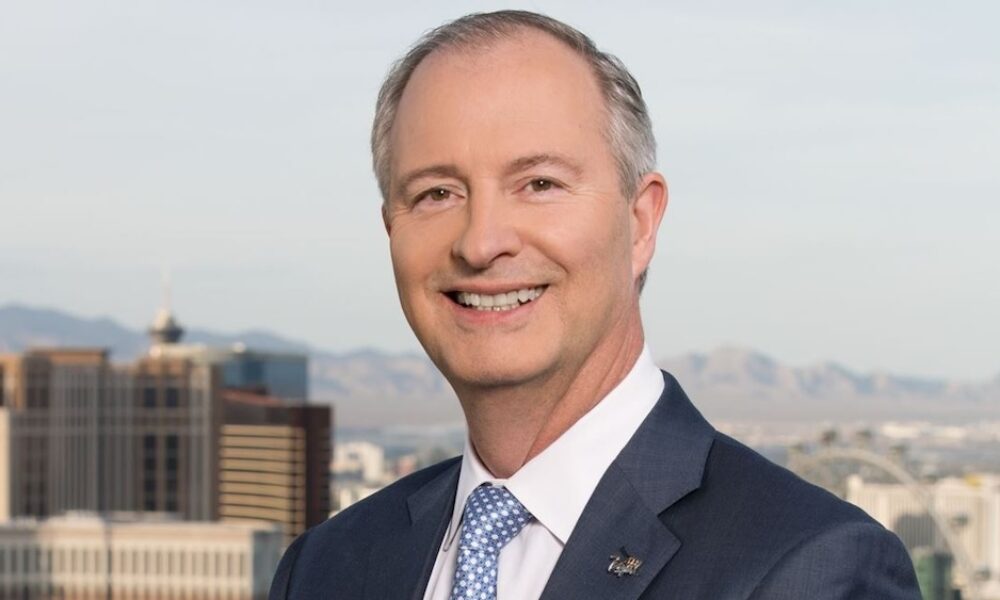The head of the Las Vegas tourism agency scoffs at some of the narratives espoused on social media that the city is “an experience of the past,” is overpriced, and that visitation won’t recover from the recent downturn.
A story from Fox News described tourism as sinking in Las Vegas and that young people are to blame. It quoted a social media activist who said he doesn’t know anyone under 40 who goes to Las Vegas regularly to gamble and that they have no interest in slots and showgirls.
Other headlines push the statistic that Las Vegas visitation is down 7.3% for the year, suggesting Las Vegas is in trouble.
Casino executives and insiders acknowledge a slowdown, but insist they’re already seeing signs of a stronger fourth quarter and 2026.
Circa Resort & Casino CEO Derek Stevens said in a recent interview with Fox News that the negative assessments are exaggerated and cited a slower economy. “In six months, I believe that Vegas tourism and our economy overall will be in a much better place.”
Steve Hill, CEO of the Las Vegas Convention and Visitors Authority, in an interview with CDC Gaming said it’s more and more difficult to find balanced coverage about Las Vegas tourism. A lot of what’s been written overemphasizes anecdotes, like Millennials aren’t interested in Las Vegas, but none are translatable to trends that affect Las Vegas on scale. In fact, year-over-year surveys continue to show Las Vegas visitors are getting younger.
“We’re going through a lull and the summer hasn’t been great,” Hill said. “Nobody here is happy with that, but it’s been a long time since we’ve had a normal lull. We used to have business cycles, with a few good years, then a down year or two. We haven’t had that since the late 1980s or early 1990s. Everything since then has been a crisis and recovery from a crisis. The summer hasn’t been great, but that’s not an indication of the future for Las Vegas. There’s still no place in the world like this city. People want to be here and the future is exceptionally bright. The naysayers will chatter, but they’ll be shown to be wrong.”
It hasn’t helped that visitation from Canada is down about 20% in recent months, with Canadians upset with U.S. policy, but that’s in contrast to international visitation essentially flat for the year. Thus, travel from outside Canada is up for the year, a positive sign, Hill said.
As for other visitors, it’s about what’s happening with their finances.
“Our budget-conscious visitor is more concerned now than they have been in a while,” Hill said. “The uncertainty around tariff policy, the job market, and their financial situation are causing them to either hesitate, delay travel, or decide that they just can’t do it right now. That’s at the core at the drop in visitation.”
As for Las Vegas pricing itself out of the market as the reason for the decline in visitation, Hill addressed that as inaccurate.
“The narrative that we’re overpriced isn’t correct,” Hill said. “I’ve traveled a fair amount over the last couple of months and pay close attention to what I’m paying for similar products that frankly don’t offer what Vegas has to offer. We’re still a value. We’re working hard to push that message. Vegas is a very competitive place. We all work together to get people here and once they’re here, everybody is competing for that business.”
Hill said that competition is the prompt for Las Vegas to reinvent itself over the years.
“That’s a positive thing and Vegas will be better for it. You’ll see a property adjust. People keep bringing up to me this $26 bottle of water. I bet a bunch of money if you go over to wherever that was and buy that water today, they changed the price. That got fixed and they moved on. Those kinds of things become exaggerated stories that don’t represent the offerings in Las Vegas.”
In a city where room rates are adjusted by the hour, Hill said that’s not causing any concerns. There’s a room rate for every budget and some places offer a range of inexpensive rooms.
“You can go to lots of places in town right now and get a room for a price that you would never be able to pay in another city.”
The LVCVA has been aggressive in combating the notion that Las Vegas is overpriced. A summer campaign used social-media influencers for budget offerings; in partnerships with Expedia and others, Las Vegas is injected into searches when people are looking at travel destinations.
“We’ve put a big spotlight on the entertainment in the summer and going into the fall,” Hill said. And more announcements will be forthcoming in the next couple of weeks about efforts to boost visitation.
While resorts have touted a bounce back in visitation for the fourth quarter and 2026, Hill said he likes what he’s hearing from the casinos. Plenty of business groups and trade shows are lined up for the fall and the Canelo Alvarez and Terence Crawford fight at Allegiant Stadium on Sept. 13 will be followed by the Raiders playing the Chargers on Monday Night Football a few days later in what will be a fantastic weekend, he said.
“We see the trade shows and group meetings and attractions coming. SEMA (the aftermarket auto-parts show) and Formula One come back in November. You get everything around the National Finals Rodeo in December. Those events matter. They’re huge draws.”
In its annual survey of Las Vegas visitors, the LVCVA discovered one change in consumer behavior they haven’t seen before, Hill said. Visitors to Las Vegas, primarily those driving in from Arizona and California, are staying with family and friends in greater numbers than in the past.
That has impacted hotel occupancy, which was down 6.5% in June and 2.1% so far for the year.
“That number is typically 6% to 7% and in the first half of the year it was 13%,” Hill said. “The numbers are different enough that we’re looking at them. It’s a startling difference from what we’re used to.”
In addition, some foreign visitors are reluctant to be in public places, concerned about immigration raids.
At the LVCVA Board meeting on Tuesday, the tourism agency extended hosting the Formula One race through 2027 as part of a global sponsorship at a cost of $20 million total. The 2024 race the weekend before Thanksgiving drew an estimated 175,000 visitors.
Hill said ticket sales are doing better than they were this time last year. He called the first year in 2023 “financially spectacular,” but from a logistics standpoint, it was really hard on the city. Last year was less financially impressive, while the logistics were much better, he said. “Both of those things can improve going into year three and it looks like that’s going to be the case.”
Hill said F1 has had a big impact beyond the race by putting more eyeballs on Las Vegas. He said there’s no better international spotlight.
“We couldn’t even think about affording the amount of coverage that Las Vegas gets from the race,” Hill said. “It’s not so much attendance. Our global sponsorship of Formula One is a multiple of the advertising that we can do internationally. We could never buy that kind of coverage. I think that exposure is part of the reason international visitation is holding steady.”
Hill said upcoming agreements with F1 will be longer than two years. The two-year deals to date have made sense for both parties, but that’s not a reflection on the future.
“We expect this race to be here permanently. The difference between having and not having that race in November is huge. You couldn’t package a group of other things on that weekend to match anything close to what Formula One is.”



